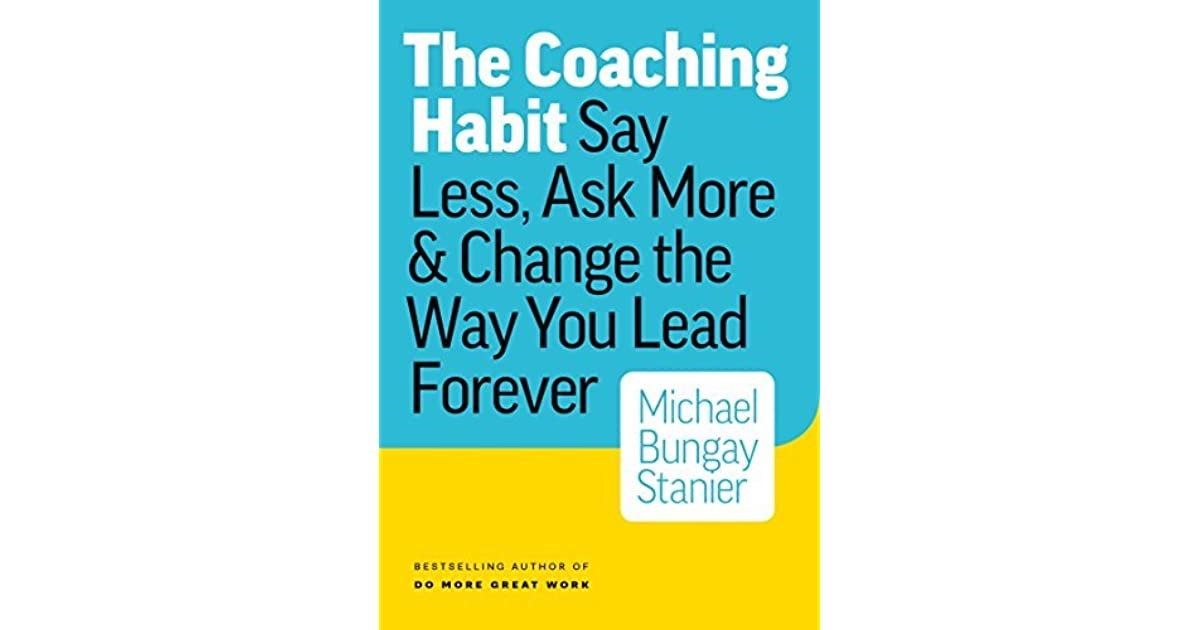Alexa Cutteridge, Head of Curriculum PE and Assistant Head of Year 7, gives a short review of ‘The Coaching Habit Say Less, Ask more & Change the Way you Lead Forever’ by Michael Bungay Stanier
“We live in the world our questions create.” (David Cooperrider)
“The minute we begin to think we have all the answers, we forget the questions.” (Madeleine L’Engle)
“Get comfortable with silence”
“Without a good question, a good answer has no place to go” (Clayton, Christensen)
–
As a PE teacher, I have spent most of my professional career practically coaching on the sports field, but I have been on a journey to bring coaching techniques to my leadership roles, and apparently, I am not alone! As noted in the book, Daniel Goleman (psychologist and journalist who popularised the concept of emotional intelligence) suggested that coaching is one of the six essential leadership styles, but is one of the least used as many leaders claim to not have time to practise it. Stanier guides you through easy ways to change your leadership behaviour, to incorporate a coaching style in a way that you do ‘a little more asking people questions and a little less telling people what to do.’ Stanier considers that it is not initially an easy concept to increase questioning and so he helpfully outlines how to change, before looking at what to change.
The seven coaching habit questions are:
- The Kickstarter Question – ‘What’s on your mind?’ the way to start any conversation in a way that is both focused and open.
- The Awe Question – the best coaching question in the world – ‘And what else?’ This works as a self-management tool for you, and as a boost for the 6 other questions.
- The Focus Question – ‘What is the real challenge for you here?’ This question helps you slow down so you can solve real problems and not just the first problem.
- The Foundation Question – ‘What do you want?’ This allows you to identify the needs of an individual and get a better understanding how you can support them.
- The Lazy Question – ‘How can I help?’ This helps cut right to the request and additionally it stops you from leaping into action unnecessarily.
- The Strategic Question – ‘If you’re saying yes to this, what are you saying no to?’ This allows the people you are working with to be fully committed to their yes and aware of the no’s which will create the space and energy for the yes to happen.
- The Learning Question – ‘What was most useful for you?’ This works with the Kickstarter question to make the Coaching Bookends. It helps to ensure that everyone finds their interactions with you even more helpful.In the educational arena, applying the coaching habit and the simple, yet powerful seven questions, has the potential to positively transform the leadership of Teachers, Heads of Departments, Pastoral Leaders, Senior Management or even pupils on Student Leadership Team. After reading this book, it is important to highlight that I do not think we need to do away with the leaderships styles we already have, but merely bring the coaching habit questions into the mix, in a way that works for us. How does that sound?




